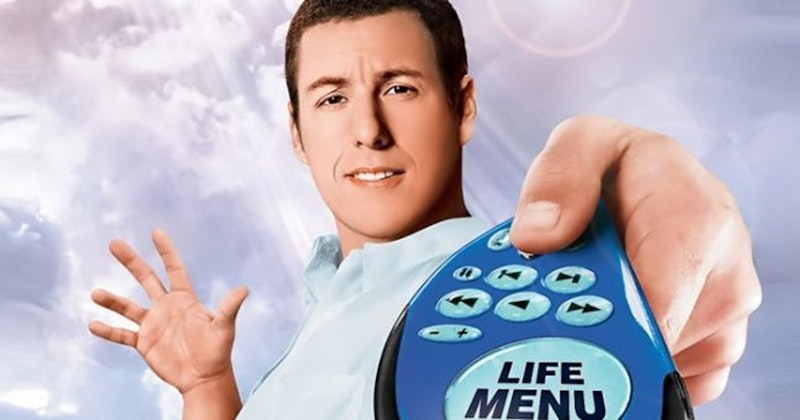Movies about mortality are always hard to sell. It’s true that the two biggest films in the world right now—Barbie and Oppenheimer—are about life and death on a universal scale, but they were sold honestly (Barbie less so, but its various twists were alluded to in trailers). Everyone knows going in that Margot Robbie’s Barbie will break out of her world and learn more about herself and grow; J. Robert Oppenheimer’s life isn’t obscure, and even if you know nothing about the Trinity test, Los Alamos, or the Red Scare of the 1950s, Christopher Nolan’s three-hour biographical epic has the most fundamental story there is: one person’s rise and fall, from brilliant theory to horrifying reality. Reviews have been far less polarizing for Nolan’s film, with the only consistent complain that “it’s hard to follow,” as if you need to know every Senator and scientist’s place in history to understand the tragedy of one man.
That’s all to say that the advertising for these movies was never misleading. Some may have missed the bombings of Hiroshima and Nagasaki, surely a spectacle in IMAX as rendered by Nolan, but to complain about their absence would be as perverse as criticizing John Frankenheimer’s 1977 disaster movie Black Sunday, where a disillusioned Vietnam vet played by Bruce Dern nearly crashes a blimp into the Super Bowl. Black Sunday isn’t entirely successful, because unlike Oppenheimer, it was produced and sold as a classier take on the disaster movie trend of the 1970s; preview audiences rightly complained that the movie didn’t deliver. Frankenheimer set the audience up to expect and want a crash.
But Black Sunday isn’t usually listed among films that were famously mis-advertised. Neither is Bicentennial Man, which I wrote about last year. Judging by the trailer, this 1999 Chris Columbus movie looks like a light-hearted family movie, with improv by Robin Williams and a giddy, one-note shopping mall score. How else could you sell a movie about a robot who outlives the family that bought him, searches the world for a scientist to make him partially human, falls in love with the granddaughter of the young girl he first worked for, and dies by assisted suicide at the end of this century? I can’t tell you how mind-blowing Bicentennial Man was to me when I saw it at seven-years-old—rather than feeling ripped off, it was like a peek into reality, however despairing.
On the urging of my friend Katherine, I finally watched the 2006 Adam Sandler film Click, directed by Frank Coraci and co-starring Kate Beckinsale, Henry Winkler, Julie Kavner, and David Hasselhoff. I missed Click in theaters, and only heard about its wild trajectory some months later; although I never watched the entire thing, I found it on cable and skipped around for the parts that take place in the future. Bicentennial Man was a bomb, a movie that most people don’t remember or never saw in the first place, but Click made $240 million against an $82 million budget, and I’m still meeting people today who were “traumatized” by the film’s whiplash plot, where workaholic Sandler finds a “universal remote” that can fast forward through life. While he fast forwards through colds, arguments with his wife, family dinners, the remote starts “learning,” and soon, it fast forwards automatically whenever he sees his family.
The balm of Click is the final five minutes, when Sandler wakes up in the Bed, Bath, & Beyond that he bought the cursed remote from and returns to life as usual, wiser than before, just like James Stewart in It’s a Wonderful Life. Capra’s “classic” is a didactic and simplistic weepy that might be the most overrated film of Classic Hollywood, if not the 20th century—Click is better than It’s a Wonderful Life, and Bicentennial Man bests them both. Only Sandler’s film made money in initial release, and to this day it’s the most recent and egregious example of false advertising in American film.
Except for a movie that came out just a year later: Bridge to Terabithia, an adaptation of a children’s book where a kid dies. I never saw the movie, just the trailer, and there was no indication this would be a film about grieving and the indifference of death. How do you market a film to children where a child dies? I would’ve been more interested in seeing it, but I was 14—what about Bicentennial Man? I’m just glad that movie got made and released. I’ve never forgotten that screening and the feeling it gave me. It was one of the first really powerful moviegoing experiences I ever had: beyond spectacle, thrills, and laughs, this was an example of popular film providing life lessons and taking artistic risks that have always been too rare in Hollywood.
So how do you market movies about mortality? With a lot of puns from Robin Williams and “Green Onions” playing in every trailer.
—Follow Nicky Smith on Twitter: @nickyotissmith

